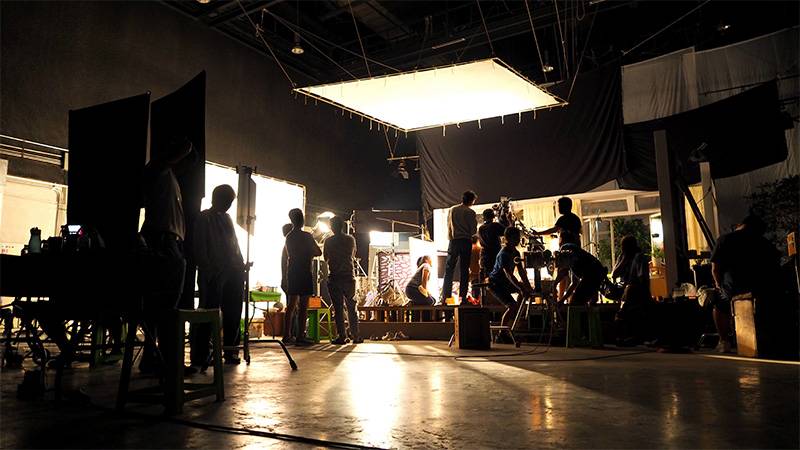In Georgia, a hub for film and TV production, a new studio is hoping its unique focus on sustainability will make it a desirable location for eco-conscious companies.
Electric Owl Studios, based just outside Atlanta, offers 312,000 square feet of space, spread across six soundstages. It is the world’s first purpose-built LEED gold-certified studio campus, equipped with solar panels, high-efficiency HVAC systems, and multiple opportunities for recycling and composting.
The co-founders of Electric Owl, Michael Hahn and Dan Rosenfelt, believe their sustainable focus can help a notoriously carbon-intensive industry to lower its footprint. Hahn is a seasoned real estate developer, while Rosenfelt has extensive experience in the film industry, having worked with big names like George Clooney and running studio sites in L.A. and Atlanta.
The film and TV industry is known for its high energy consumption and waste production. A report by the British Film Institute equates the carbon emissions of the largest movies to driving from Atlanta to San Francisco nearly 3,000 times. To combat this, Electric Owl uses LED lights and onsite solar panels that provide about 30% of the power. All sets are recycled, and a local company, Lifecycle Building Center, reuses set pieces. Leftover food is donated or composted.
Emellie O’Brien is the CEO of Earth Angel, a consultancy that works with companies to make their productions greener. She says that while there are sustainable-minded studio lots in Canada and Europe, Electric Owl seems to be ahead of the rest in the U.S. Her company, which has worked on productions from Black Panther to Severance, does things like provide alternative fuel sources for diesel generators, which account for about 15% of total emissions on set. O’Brien says it helps immensely when sound stages have sustainable infrastructure embedded. “It means that we don’t have to worry so much about where our energy is being sourced [or] how our zero waste program is going to work,” she says.
According to Fast Company, the move towards sustainability aligns with major Hollywood producers’ goals. Netflix aims to cut its greenhouse gas emissions in half by 2030, and NBCUniversal wants to be carbon-neutral by 2035.
Despite the need for sustainability, Rosenfelt acknowledges that cost remains a critical factor for producers. Electric Owl worked to include sustainable features without significantly increasing the budget, adding just 1% to the total. It achieved this by partnering with local companies, like Cherry Street Energy, which installed the solar panels for free.
With competitive prices and green facilities, Electric Owl hopes to stand out in the crowded film production market, offering what Rosenfelt describes as a “special boutique hotel for movies and TV shows.”
More inspiring green news similar to this:


